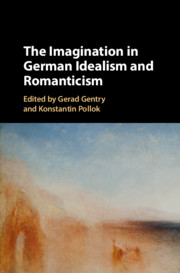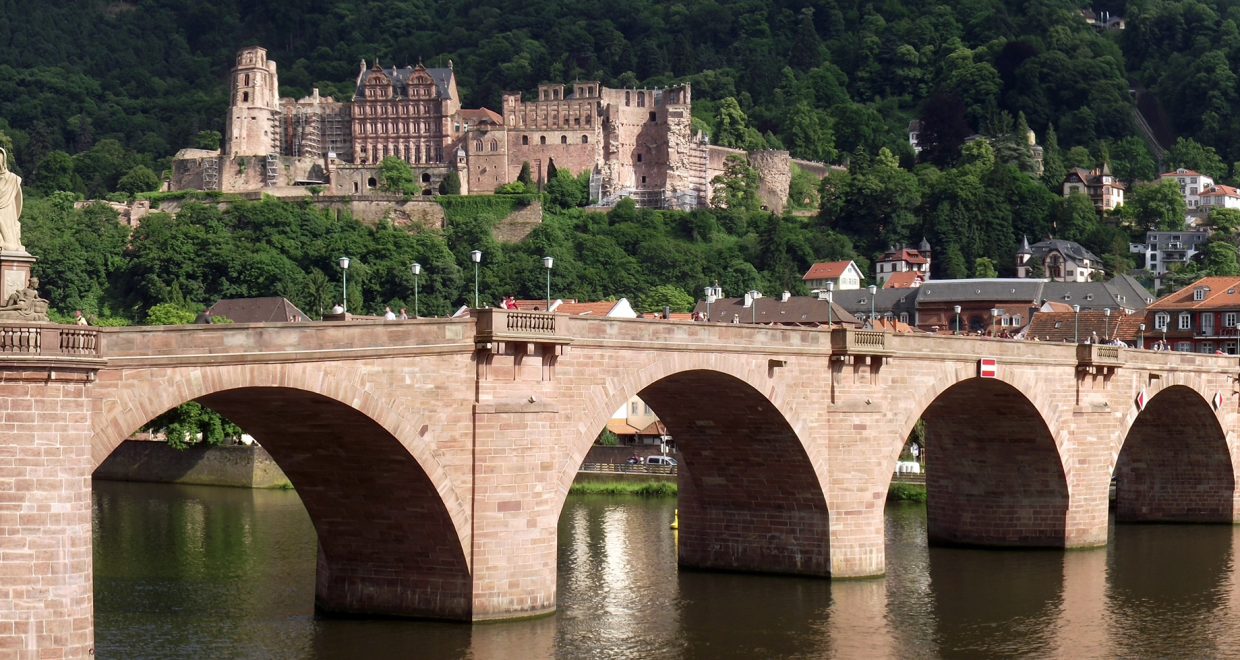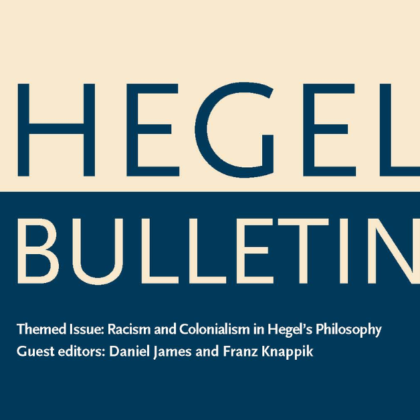The Imagination in German Idealism and Romanticism
In every thought, reason depends on the imagination to represent, envision, combine, create, and produce. Yet the imagination remains an incidental concept at best in standard philosophical discourse.
There is no denying that Frege’s first-order logic marked an important advance in philosophy. Nevertheless, we might think that some of the resulting (important) analytic drives of the past century simultaneously refined and diluted philosophy. For all the advances, the linguistic norms of the twentieth century tended toward mechanical and (arguably) reductively quantifiable, linguistic forms. The benefits were clear. The sacrifice perhaps less clear.
The twenty-first century is displaying a nascent change. Increasingly, it is common to ask the question: is something lost in this mechanistic and reductive way of structuring reason and its expression? We might push this question further and ask, can that which is lost be (partially) restored through something like a dynamic conception of the imagination in contemporary philosophy? The imagination, the act of representing to oneself in a (somewhat) self-productive way, may capture a sense of the organic and artistic qualities involved in the spontaneity of thought, but also the sense that no matter how law-governed and necessary our thought-relations, there is a dynamic nature to those relations that is only poorly captured (if at all) in overly mechanistic, linguistic constructs. Certainly thought is mechanistic, structured, law-like, but isn’t it also organic, fluid, and free even in those law-like, necessary movements? In keeping with this movement, Martha Nussbaum writes compellingly of the “moral imagination.” She identifies it as that artistic ability of flourishing individuals to see themselves and others into the best possibility of the moment. To know just what to say or not say, to do and in what way and at what point, these determinations of practical wisdom require an artistic excellence cultivated in reason. It is the cultivated quality of reason that allows us to see how an action might affect someone, how a word might be spoken, how to manifest richly and well the thoughts we have and the things we intend to communicate. Such imaginative possibilities and manifestations all depend on a kind of artistic imagination to achieve any degree of excellence. This is just the moral or practical sphere of human life, to say nothing yet of the epistemic, theoretical, aesthetic, empirical, and even logical spheres of human reason.
There seem to be at least some good reasons, then, to take seriously the role of the imagination when reflecting on our contemporary self-awareness, hermeneutical terms, and conceptual categories. For the German idealists and romantics, the imagination draws out the productive and synthetic functions of the mind whereby we are capable of intuiting, synthesizing, and representing thoughts to ourselves. The imagination is central to our self-conscious freedom, to our ability to envision a possible future and set about making that a reality.
F.W.J. Schelling wrote that the imagination was the power in reason of “mutual informing into unity.” Immanuel Kant saw the principle of the “free lawfulness of the imagination” as the form of both aesthetic and teleological judgments as well as the source of reason’s “synthesis in general.” G.W.F. Hegel claimed that Kant’s articulation of the imagination was the true “germ of speculation,” and Kant’s “truly speculative idea,” which would mark the beginning (for him) of a new, organic, systematic method of idealism. For Fichte, a principle of the imagination served as the self-grounding ground whereby he establishes the identity of the “I” as the basis of theoretical and practical claims to knowledge. The German idealists made much of the imagination in their accounts of reason.
For the German romantics, from Goethe and Hölderlin to Schlegel and Novalis, the imagination was a way of identifying that the laws of reason, however universally necessary, are formed, constituted, and given life through experience, through organic growth, and through artistic forms. For the romantics, the imagination identified a unity of the artistic and organic nature of reason. These thinkers held that reason is itself artistic. To claim that it is artistic was not to deny logical form or necessity. Indeed, particularly for Goethe and Hölderlin, true reason was neither a distillation from experience to abstract forms, nor a reduction from logical forms to mere experience. Instead, reason in its flourishing state is an organic growth of an artistic, logical, lawful, creative being. The visions that the artist present are not indifferent to the laws of reason. The laws of reason only gain their significance and full power when repeatedly constituted through the power of artistic formation. The imagination picks out that creative, yet law-like, power of reason.
The imagination, for these thinkers, was central to human reason but not separable. It is a mark identifying that reason is moved by a kind of artistic freedom, that reason is more organic and life-like than many philosophical traditions of the past century allow. In other words, for the idealists and romantics, it is a way of identifying a vital part of the whole of human reason. The imagination, in its most general sense, helped retain a holistic and healthy conception of the nature of reason.
One important upshot of an explicit articulation of the imagination as a core feature of reason is that it allows us to retain the artistic and aesthetic significance of thought, experience, and life in a way that grounds many otherwise abstracted, symbolic and mechanistic reductions in ethics, epistemology, metaphysics, sociopolitical thought, and philosophy of science. The Imagination in German Idealism and Romanticism, which is now out with Cambridge University Press, is a significant contribution to this increasingly influential and important movement in philosophy.







